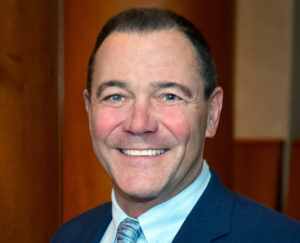Resilience, NOT Resolutions

Generally, this New Year’s column would be about resolutions for the year ahead. However, after all that has transpired in the last 10 months (and on January 6th especially), resilience is foremost in my mind as we look ahead to whatever 2021 might bring.
I am not suggesting resilience works or is even possible for everyone, but my reading on the topic tells me it is what I must have on hand as a leader, a family member and a friend. Resilience is defined by Oxford Languages as:
- the capacity to recover quickly from difficulties; toughness.
- the ability of a substance or object to spring back into shape; elasticity.
Further, “resilience is a special skill because it is so defined by outlook and response. It is an adaptive mode of thinking which has to be developed gradually, alongside techniques for improving one’s initial response to something bad or unwanted. Resilience is what gives people the psychological strength to cope with stress and hardship. It is the mental reservoir of strength that people are able to call on in times of need to carry them through without falling apart.”
Finally, “resilient leaders have the ability to sustain their energy level under pressure, to cope with disruptive changes and adapt. They bounce back from setbacks. They also overcome major difficulties without engaging in dysfunctional behavior or harming others” (quotes from the Everyday Health website). Resilient leadership covers emotional, physical, psychological and community elements. These types of leadership can be learned and there are many ways, tools, domains, and skills to help you accomplish that.
My commitments (okay, these almost sound like resolutions) as a serving leader of a faith-based association of health and human service ministries are listed here in an invitational manner:
- As leaders, we must continue to be a community that is both courageous and compassionate.
- As serving leaders, we must be steadfast in showing the way through our actions.
- As providers, we must strive to find innovative ways to deliver more services to an increasing number of clients even as resources are diminished.
- As persons of faith, we must believe that hope, love, kindness, and generosity will maintain our spirit as we work to spread the good news of Jesus’ teachings.
- And, as human beings, we must be willing to forgive ourselves and others in case we may not always do it the right way, for everyone, every time. Otherwise we might stop trying and no longer be resilient.
I am not sure I will be able to do all of this every day and all the time, but I am going to try, and I will hold myself accountable. Will you join me in this journey so that we can support and encourage each other when we struggle to be resilient? Happy New Year!
Join Our Mailing LIst
Follow on Facebook
Iredell Adult Day Services Hosts Ribbon-Cutting to Celebrate Adult Day Health Certification - CHHSM
www.chhsm.org
Iredell Adult Day Services (IADS) in Newton, N.C. — a nonprofit organization dedicated to caring for older adults, vulnerable groups, and their families, and part of EveryAge — hosted a ribbon cut...